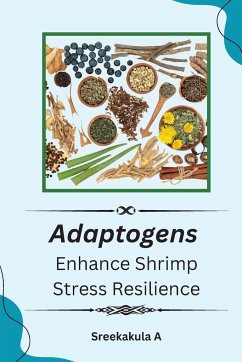Adaptogens are natural substances that help the body adapt to stress and maintain overall balance. They are known to have a positive impact on human health and have been used in traditional medicine for centuries. However, recent research suggests that adaptogens can also benefit animals, including shrimp. Shrimp farming is a major industry worldwide, but it is not without its challenges. Shrimp are highly susceptible to stress, which can lead to a variety of negative outcomes, including reduced growth rates, increased susceptibility to disease, and even death. As a result, there is significant interest in finding ways to enhance shrimp stress resilience and improve overall health. Recent studies have shown that adaptogens can play a crucial role in this regard. For example, one study examined the effects of ginseng, a well-known adaptogen, on shrimp. The researchers found that shrimp fed a diet supplemented with ginseng had higher survival rates and were better able to withstand stressors such as high water temperatures and low oxygen levels. Other adaptogens have also been shown to have positive effects on shrimp health. For example, ashwagandha, a popular adaptogen in traditional Indian medicine, has been found to improve shrimp growth and survival rates, as well as reduce stress-related behaviors. Similarly, Rhodiola rosea, a popular adaptogen in traditional Chinese medicine, has been found to improve shrimp immune function and reduce mortality rates. The mechanisms by which adaptogens exert their beneficial effects on shrimp are not yet fully understood, but they are thought to involve a variety of biochemical pathways. For example, adaptogens are known to modulate the hypothalamic-pituitary-adrenal (HPA) axis, which is a key pathway involved in the body's response to stress. By modulating this pathway, adaptogens may help shrimp cope with stress more effectively and reduce the negative consequences of stress on their health. Overall, the research suggests that adaptogens have significant potential to enhance shrimp stress resilience and improve overall health. As such, they may be an important tool for shrimp farmers looking to improve the sustainability and profitability of their operations.








